About Gateway Rehab – Outlet Way
Located in Greensburg, Pennsylvania, Gateway Rehab offers outpatient treatment for adults and adolescents recovering from substance use disorder. Clients can receive services such as counseling, medication management, and psychiatric support. The facility accepts Medicaid and most major insurance plans.
Specialized Addiction Treatment for Adolescents
The facility recognizes that adolescents have unique needs when it comes to recovering from addiction. The counselors will work with youth clients to address common underlying causes of substance use.
Issues that may be focused on include low self esteem, family conflict, and peer pressure. Types of therapy available to adolescent clients include individual, group, and family counseling.
Accessible Care Through Telehealth Services
Transportation concerns, busy schedules, and childcare needs are some issues that are barriers for individuals accessing addiction recovery services. Gateway Rehab offers telehealth services to make care more easily accessible for their clients. Telehealth can take place at home via an online platform. You can connect to outpatient counseling groups, psychiatric services and medication management.
Effective Medications To Support Your Recovery
One thing that stands out about this facility is the variety of medications they have available as a part of their medication assisted treatment (MAT) program. Suboxone, Vivitrol, Sublocade, and ReVia can help reduce cravings or physical withdrawal symptoms. When they’re combined with therapy to develop relapse prevention strategies, clients can have an increased chance of long term recovery.
Gateway Rehab is conveniently located less than 45 minutes away from Pittsburgh. Outside of your treatment sessions, you can spend time enjoying activities such as hiking at Point State Park or visiting the Senator John Heinz History Center.
Latest Reviews
Rehab Score
Gallery
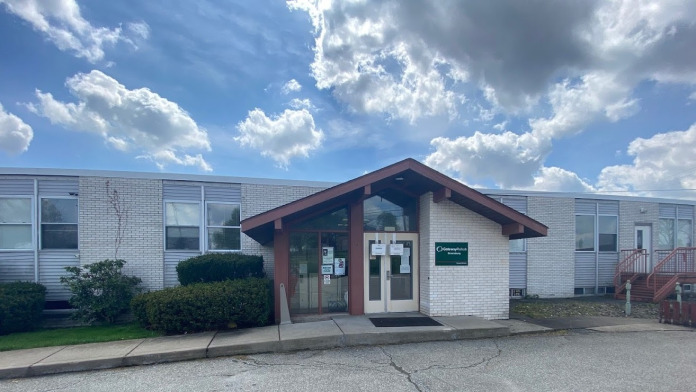
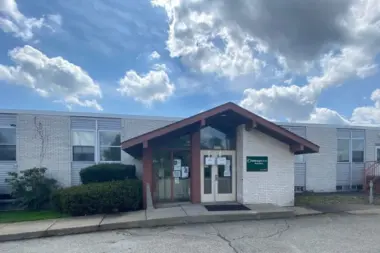
Accepted Insurance



Other Forms of Payment
Medicaid is a state based program that helps lower-income individuals and families pay for healthcare. Medicaid covers addiction treatment so those enrolled can use their coverage to pay for rehab. When a program accepts Medicaid the client often pays very little or nothing out of their own pocket.
Private insurance refers to any kind of healthcare coverage that isn't from the state or federal government. This includes individual and family plans offered by an employer or purchased from the Insurance Marketplace. Every plan will have different requirements and out of pocket costs so be sure to get the full details before you start treatment.
Self-pay involves paying for treatment out of your own pocket. You can use savings or credit, get a personal loan, or receive help from family and friends to fund your treatment. If you don't have insurance or your insurance plan doesn't cover a specific program, self-pay can help ensure you still get the care you need.
Financial aid can take many forms. Centers may have grants or scholarships available to clients who meet eligibility requirements. Programs that receive SAMHSA grants may have financial aid available for those who need treatment as well. Grants and scholarships can help you pai for treatment without having to repay.
Military members, veterans, and eligible dependents have access to specific insurance programs that help them get the care they need. TRICARE and VA insurance can help you access low cost or no cost addiction and mental health treatment. Programs that accept military insurance often have targeted treatment focused on the unique challenges military members, veterans, and their families face.
Addiction Treatments
Levels of Care
Outpatient programs are for those seeking mental rehab or drug rehab, but who also stay at home every night. The main difference between outpatient treatment (OP) and intensive outpatient treatment (IOP) lies in the amount of hours the patient spends at the facility. Most of the time an outpatient program is designed for someone who has completed an inpatient stay and is looking to continue their growth in recovery. Outpatient is not meant to be the starting point, it is commonly referred to as aftercare. Outpatient drug rehab services provide flexible and confidential treatment required by those who are struggling with a growing alcohol or drug dependency problem but also have the self-confidence to seek professional help.
Drug and alcohol addiction often takes a heavy toll on one's body. Over time, a physical dependence can develop, meaning the body physiologically needs the substance to function. Detox is the process of removing drugs and/or alcohol from the body, a process that can be lethal if mismanaged. Medical detox is done by licensed medical professionals who monitor vital signs and keep you safe, healthy, and as comfortable as possible as you go through detox and withdrawal.
Intensive Outpatient Programs (IOP) are for those who want or need a very structured treatment program but who also wish to live at home and continue with certain responsibilities (such as work or school). IOP substance abuse treatment programs vary in duration and intensity, and certain outpatient rehab centers will offer individualized treatment programs.
Twelve-step Facilitation (TSF), a manual-guided therapy based upon the 12-step model outlined in Alcoholics Anonymous, Narcotics Anonymous and other 12-step fellowships. The involvement focuses on the patient’s acceptance of his/her drug use as a disease, using 12-step tools, and connecting with recovering persons in 12-step fellowships.
Treatments
The goal of treatment for alcoholism is abstinence. Those with poor social support, poor motivation, or psychiatric disorders tend to relapse within a few years of treatment. For these people, success is measured by longer periods of abstinence, reduced use of alcohol, better health, and improved social functioning. Recovery and Maintenance are usually based on 12 step programs and AA meetings.
Drug rehab in Pennsylvania is devoted to the treatment of addiction. Levels of care, treatment methods, and settings differ, but the aim of each program is to end drug dependency and empower participants to achieve long-term recovery.
Opioid rehabs specialize in supporting those recovering from opioid addiction. They treat those suffering from addiction to illegal opioids like heroin, as well as prescription drugs like oxycodone. These centers typically combine both physical as well as mental and emotional support to help stop addiction. Physical support often includes medical detox and subsequent medical support (including medication), and mental support includes in-depth therapy to address the underlying causes of addiction.
Substance rehabs focus on helping individuals recover from substance abuse, including alcohol and drug addiction (both illegal and prescription drugs). They often include the opportunity to engage in both individual as well as group therapy.
Programs
Adult rehab programs include therapies tailored to each client's specific needs, goals, and recovery progress. They are tailored to the specific challenges adult clients may face, including family and work pressures and commitments. From inpatient and residential treatment to various levels of outpatient services, there are many options available. Some facilities also help adults work through co-occurring conditions, like anxiety, that can accompany addiction.
Young adulthood can be an exciting, yet difficult, time of transition. Individuals in their late teens to mid-20s face unique stressors related to school, jobs, families, and social circles, which can lead to a rise in substance use. Rehab centers with dedicated young adult programs will include activities and amenities that cater to this age group, with an emphasis on specialized counseling, peer socialization, and ongoing aftercare.
Clinical Services
Research clearly demonstrates that recovery is far more successful and sustainable when loved ones like family members participate in rehab and substance abuse treatment. Genetic factors may be at play when it comes to drug and alcohol addiction, as well as mental health issues. Family dynamics often play a critical role in addiction triggers, and if properly educated, family members can be a strong source of support when it comes to rehabilitation.
Group therapy is any therapeutic work that happens in a group (not one-on-one). There are a number of different group therapy modalities, including support groups, experiential therapy, psycho-education, and more. Group therapy involves treatment as well as processing interaction between group members.
In individual therapy, a patient meets one-on-one with a trained psychologist or counselor. Therapy is a pivotal part of effective substance abuse treatment, as it often covers root causes of addiction, including challenges faced by the patient in their social, family, and work/school life.
Amenities
-
Private Setting
Staff & Accreditations
Staff
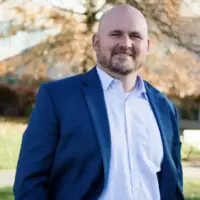
James Troup
President & CEO

Karen Vula
CFO

Julia D'Alo, M.D.
CMO
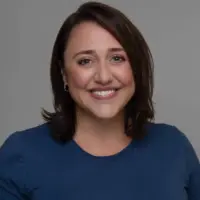
Amy Hanrahan
Chief People Officer
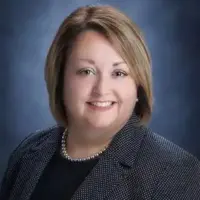
Carin J. Fraioli
VP of Recovery Services

Lisa Cerra
VP of Nursing
Accreditations

The Joint Commission, formerly known as JCAHO, is a nonprofit organization that accredits rehab organizations and programs. Founded in 1951, the Joint Commision's mission is to improve the quality of patient care and demonstrating the quality of patient care.
Joint Commission Accreditation: Yes
Contact Information
212 Outlet Way
Suite 1
Greensburg, PA 15601










